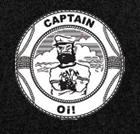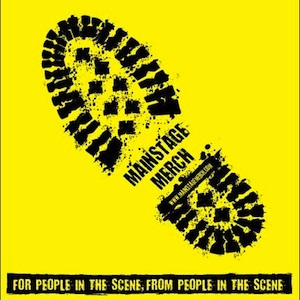The following news story appeared on the T&M homepage:
LEFT OF THE DIAL WEBSITE REVIEW OF 'BONEFIELD'
There has been a late - but rather fabulous - review of the recent Urban Dogs' 'Bonefield' album by the splendid David Ensminger on his Left Of The Dial website...
Archived also below!
Urban Dogs (Acoustic)/ Bonefield: Time and Matter Records
Few living punks can equal the stalwart legacy of Charlie Harper, whose career stretches as far back as busking on the streets in the 1960s, which sets the ground for this acoustic outing with Knox (The Vibrators) fifty years later. Even as punk has endlessly been rehashed, recasted, and transmuted into both a timid chain-store genre of crony capitalism and a streetwise house-party legacy of poor teenagers trying to remain authentically restless and riotous, Charlie Harper has weathered it all and comes out wise and whiplash-inducing, at least in his U.K. Subs incarnation.
This album achieves a different kind of blues, literally; instead of offering another trampling and loud-as-hell Urban Dogs outing equal to the stadium-filling chanting snarls of “New Barbarians” and equally potent and pummeling “Wanna World” (“where we can swim without pollution”), this features crushingly intimate versions of familiar tunes, but they come unclothed, rebirthed, and poetic in their spare succinctness.With a roiling bass intro and choppy guitar, the Cold War anthem “Warhead” punctuated the Second Wave punk era with its geopolitical deconstruction: whereas Joe Jackson worried about girls and looking sharp, Charlie calibrated the cost of Western and Soviet intervention in Third World countries (Russians mowing down Islamic armies in Afghanistan, children in Africa with Tommy Guns). Now, with a voice that seems equal parts sandpaper-throated Frankie Stubbs (Leatherface) and nasally Bob Dylan, the song feels moody, timeless, and acute. It may shed its acerbic punk skin, but as a slow meditation on war mongering, it feels like the soundtrack to a 21st century still hell-bent on devastating the planet, as Charlie passionately ad-libs at the end.
In my book Visual Vitriol, I posited that punk harbored deep, nuanced connection to black music and culture (obvious in bands like the Jam and the Clash). Academics scoffed at me, punk fans sometimes bristled too, but listening to Charlie Harper (interviewed in my newest book Left of the Dial) seals the deal. Listening to his version of “Cocaine” (again, not the blustery electric version) by the Reverend Gary Davies, replete with howling harmonica and distorted old-timey vocals, proves that Charlie is as much a living homage to roughshod American roots music as he is a primordial pop music rebel.
In case you doubt, flip the dial to “Swamp Dog Blues,” a fetid, autobiographical, swaggering swamp rock tune or the Hank Williams country standard “Move It On Over” turned into a tar paper shotgun shack Southern blues primer too. Sure they can’t match Hank’s vocal inflections and tight, lean style, but their rough and shaggy stab could still make a jukebox quiver. They spread their love around as well, even including the George Gershwin gem “Summertime” (from Porgy and Bess), which gets a facelift. Instead of merely being well-crafted, jazzy ear-candy, it feels like another swinging jab at the blues, with caterwauling guitar, torso-undulating groove, and punchy lyrical style. Meanwhile, Knox takes mutates The Vibrators soaring, pogo perfect, chorus-heavy, tom-tom laden “Dragnet” into bare-boned Eddie Cochran territory.
Other stand-outs include the incessant UK Subs favorite “Tomorrow’s Girls,” in a backyard hootenanny version, about modern women navigating changing times, when factories and slaving at 9 -5 pm jobs makes no sense. Sure, I miss the Nicky Garratt tightly wound guitar churning, the 45-rpm propulsion, and Charlie’s hectic vocal stabs, but this looser, tamer version also feels equally poignant. “Not in My Name” may be the single original tune on the album, but the brief piece, abhorring war and global violence, is also likely one of the most alluring, for it serves to sum up the ethos of the band in under two minutes — not with tuneful despair but with pithy protest and sharp-tongued truth telling.















